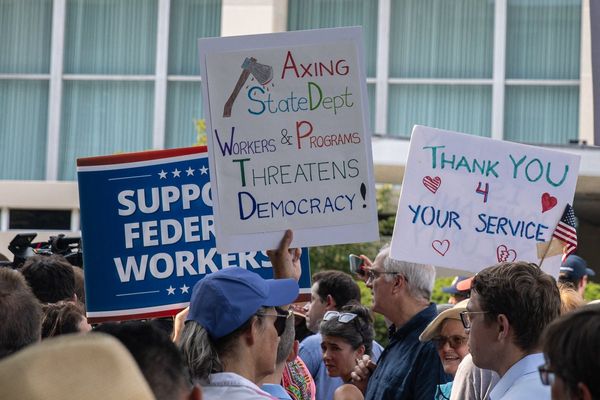
French lawmakers are considering launching a probe into the impact of the country's nuclear weapons tests in French Polynesia over three decades.
From the 1960s to the 1990s, France detonated almost 200 nuclear bombs in French Polynesia – a scattered Pacific island territory thousands of kilometres east of Australia – including 41 atmospheric tests between 1966 and 1974.
The largely communist GDR group in France's National Assembly has made a written request for an investigation, stating: "We need to ask ourselves what the French government knew about the impact of the tests before they were carried out, as they occurred and up to today".
The GDR used its right to request one parliamentary investigation per session to demand the probe, which must be formally approved by the parliament's defence committee.
In the text written by Mereana Reid Arbelot, a French Polynesian member of parliament, the blasts "had numerous consequences: They relate to health, the economy, society and the environment".
She also called for a "full account" of the consequences and added that the group wanted to "shed light" on how testing sites were first chosen in the 1950s.
Reid Arbelot stressed that those decisions inflicted "trauma on the civilian and military populations" of the islanders.
📢𝐉-𝟐 𝐚𝐯𝐚𝐧𝐭 𝐥𝐚 𝐩𝐫𝐨𝐣𝐞𝐜𝐭𝐢𝐨𝐧-𝐝𝐞́𝐛𝐚𝐭 𝐝𝐞𝐬 𝐎𝐮𝐛𝐥𝐢𝐞́𝐬 𝐝𝐞 𝐥'𝐚𝐭𝐨𝐦𝐞 𝐚̀ 𝐥'𝐀𝐬𝐬𝐞𝐦𝐛𝐥𝐞́𝐞 𝐧𝐚𝐭𝐢𝐨𝐧𝐚𝐥𝐞
— Mereana Reid Arbelot (@MereanaReidArb) October 23, 2023
Un trailer réalisé par @nuclearban qui annonce une soirée riche en échanges 🙏#trailer #nucleaire #Polynésie #AssembleeNationale pic.twitter.com/n9pw6i8bBU
Calls for compensation
The GDR maintains that Paris' claims about how much radiation people were exposed to at the time of the tests are contested among scientists and should be revised.
Paris first opened a path to compensation in 2010 when it acknowledged health and environmental impacts.
A study published by the French National Institute of Health and Medical Research (INSERM) last year found that the nuclear tests slightly increased the risk of thyroid cancer for local people.
But campaigners at the time said that it should have investigated a larger segment of the population and called for more reparations.
On a visit to French Polynesia in 2021, President Emmanuel Macron said the nation owed the overseas territory "a debt" for the nuclear tests – the last as recent as 1996.
He called for the testing archives to be opened, save only the most sensitive military information.
De Gaulle's nuclear legacy
France's independent nuclear programme was launched in the wake of World War II and pushed by the founder of the Fifth Republic, Charles de Gaulle.
One of nine nuclear powers in the world, it maintains a stock of around 300 warheads – a similar level to China or Britain, but far short of heavyweights Russia and the United States.
French nuclear doctrine calls for the bombs to be used only if the country's "vital interests" are under threat – a relatively vague term leaving the president wide leeway to decide on their use.







